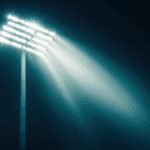We tend to take our eyes for granted. They quietly work all day, adjusting to light, focusing on different distances, and processing millions of colors — all without us giving them much thought. It’s usually only when something goes wrong — sudden blurriness, painful irritation, or the dreaded “I think I have something stuck in my eye” — that they get our full attention.
While modern medicine can correct many vision problems, some damage can’t be undone. And even when treatments exist, no one really wants to end up needing laser surgery, eye drops for life, or a transplant if they can avoid it.
That’s why eye doctors — people who’ve seen just about every possible mistake in eye care — are quick to share the habits they personally avoid. These aren’t just “good ideas.” They’re the things experts refuse to do themselves.
1. Sleeping in Contact Lenses (Unless They’re Specifically Approved for It)
It sounds harmless enough — a quick nap with your contacts in. But even a short snooze can create the perfect storm for bacteria to multiply between your lens and your cornea. Without blinking, your eyes get less oxygen, which slows down their natural defenses.
Doctors warn that this is how infections like microbial keratitis take hold. In severe cases, this can cause a corneal ulcer — an open sore that can be agonizingly painful and potentially scar the eye. In the most extreme cases, it can lead to vision loss and the need for a corneal transplant.
Even “extended wear” lenses carry risks, but they’re less dangerous than sleeping in daily lenses. Still, most experts say it’s best to take them out before bed, no matter what type you have.
Fun fact: According to the CDC, people who sleep in their contacts are six to eight times more likely to develop an eye infection.
Read more: Psychologists Say That ‘Peniaphobia’ Is Becoming a Mental Health Crisis
2. Staring at Screens Without Breaks
Phones, laptops, tablets — we spend hours glued to them, often without realizing it. But staring at something up close for too long can strain the muscles that control focus in your eyes.
For children and teens, this can actually change the shape of the eye over time, increasing the risk of myopia (nearsightedness). In adults, it’s less likely to change the eye’s structure but can still cause headaches, blurred vision, and general discomfort.
That’s why doctors recommend the “20-20-20 Rule”: every 20 minutes, look at something at least 20 feet away for 20 seconds. This gives your focusing muscles a break and allows your blink rate to normalize (we blink less often when staring at screens, which dries out our eyes).
Real-world example: Many office workers who complain about “eye fatigue” actually feel better in just a week of practicing this habit — especially if they also adjust screen brightness and position.
3. Skipping Regular Eye Exams
Even if your vision seems perfect, skipping checkups is risky. Some conditions, like glaucoma and diabetic retinopathy, can quietly damage your eyes without causing noticeable symptoms in the early stages.
A dilated eye exam lets your doctor see the retina, optic nerve, and blood vessels in the back of the eye — areas where trouble can be brewing without your knowledge.
For people with diabetes, annual eye exams are especially crucial. High blood sugar can damage retinal vessels, causing leaks, swelling, and even retinal detachment. The scary part? Many patients don’t notice any change in their vision until the damage is advanced.
Tip: Think of eye exams like car maintenance. Even if the car seems fine, you still check the brakes, tires, and engine to catch problems before they cause an accident.
4. Ignoring Sudden Vision Changes
If you suddenly notice flashing lights, a flood of new floaters, or what feels like a dark curtain coming across your vision, get emergency help. These can be signs of a retinal tear or detachment — both time-sensitive conditions.
When the retina pulls away from its normal position, the cells that process light lose their blood supply. If not reattached quickly, those cells can die, leading to permanent blindness in that area of vision.
The good news? If caught early, a retinal tear can often be fixed with a quick in-office laser procedure, preventing full detachment.
Read more: Scientists Pinpoint the Exact Distance You Should Walk Each Day for Optimized Health
5. Leaving Makeup On Overnight
We all know sleeping in makeup isn’t great for our skin, but for our eyes, it’s even worse. Mascara flakes and eyeliner can block the tiny meibomian glands along your eyelids, which produce the oily part of your tears. Without this oil layer, tears evaporate too quickly, leading to dry eye syndrome.
Over time, leftover makeup can also harbor bacteria, increasing the risk of styes and other infections.
Doctors suggest using gentle, oil-free makeup removers and being extra careful around the lash line. And if your eyes already feel dry, preservative-free artificial tears can help restore comfort without irritating sensitive tissue.
6. Looking Directly at the Sun (Even for “Just a Second”)
You probably learned this in elementary school, but it’s worth repeating: staring at the sun can cause solar retinopathy — permanent damage to the retina.
During a solar eclipse, the temptation to sneak a peek is high. But regular sunglasses don’t block the harmful rays that can burn delicate retinal tissue.
NASA-approved eclipse glasses or pinhole projectors are the only safe ways to view an eclipse. Once the damage is done, there’s no reversing it.
7. Smoking or Vaping
Cigarettes and e-cigarettes don’t just harm your lungs and heart — they can also damage your eyes. Smoking doubles the risk of developing cataracts and is the leading preventable cause of macular degeneration, which slowly robs people of their central vision.
The chemicals in smoke can also irritate the eye’s surface, leading to chronic dryness, redness, and in some cases, corneal damage.
Quitting smoking benefits your eyes almost immediately. Within a year, blood flow to the retina improves, and the risk of some eye diseases starts to drop.
8. Rinsing Contact Lenses in Tap Water
Tap water might be safe to drink, but it’s not safe for your eyes. It can contain a microscopic parasite called Acanthamoeba that can cause a rare but devastating eye infection.
This infection can lead to severe pain, vision loss, and sometimes the need for a corneal transplant. Contact lenses should only ever be rinsed or stored in sterile solution.
And while we’re on the topic — replacing your lenses on schedule isn’t just a suggestion from the manufacturer. Old lenses can get scratched or coated with deposits, which increase the risk of irritation and infection.
9. Eating a Poor Diet
Your diet affects every part of your body, including your eyes. High sugar and unhealthy fats can contribute to diabetes and high blood pressure — two major causes of vision loss.
Nutrients like vitamin A, vitamin C, vitamin E, zinc, and omega-3 fatty acids all play roles in keeping the retina and cornea healthy. That’s why eye doctors often recommend a Mediterranean-style diet full of leafy greens, colorful fruits, fish, nuts, and whole grains.
Not only can this reduce your risk of eye disease, but it can also improve circulation, which keeps the tiny blood vessels in your eyes in top shape.
Read more: Widely Used Vitamin Supplements Pulled From Shelves After “Life Threatening” Health Risk
The Takeaway: Small Habits, Big Impact
Protecting your eyes isn’t about doing anything complicated. It’s about making small, consistent choices — taking breaks from screens, eating nutrient-rich foods, wearing proper sun protection, and keeping up with checkups.
Your eyes are delicate, irreplaceable, and incredibly valuable. Treat them well, and they’ll keep giving you a clear view of life for decades to come.










